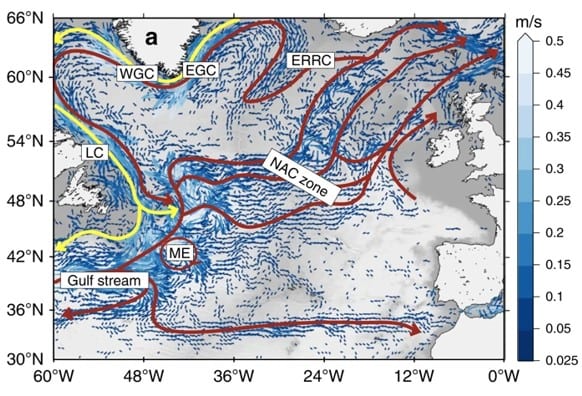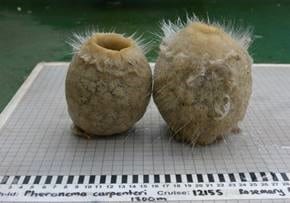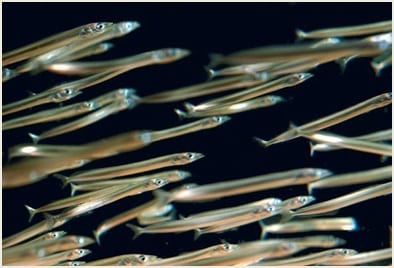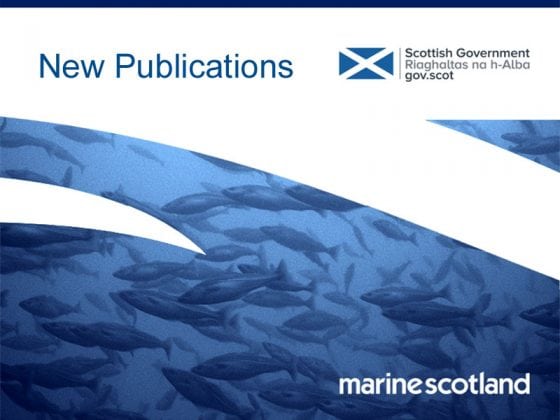Marine
-
New Blue Carbon Resource for Marine Scientists
24th February 2020 by Marine Directorate Communications
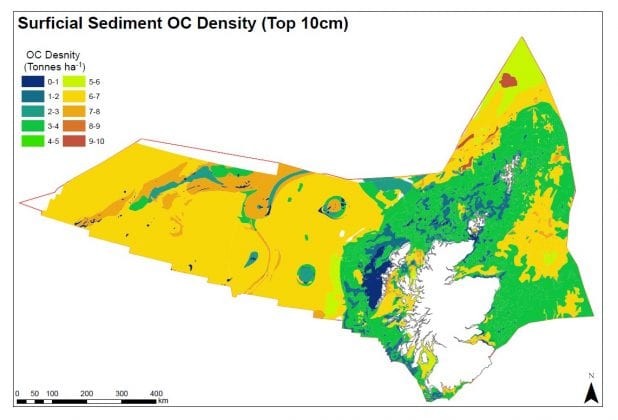
Two new science reports have been published today by Marine Scotland Science (MSS) that will be used to improve our understanding and management of Blue Carbon; carbon found stored beneath the sea in sediment, shells and living plants. One is a collaborative project with University of St Andrews ‘Re-Evaluating Scotland’s Sedimentary Carbon Stocks’ and the...
-
Recent Decrease in Ocean Salinity in the North Atlantic Waters off Scotland
31st January 2020 by Marine Directorate Communications

Research published in Nature Communications this week has investigated the recent, large reduction in salinity measurements in the North Atlantic Ocean. Evidence of this surface salinity change includes the time series collected by Marine Scotland Science in the Faroe-Shetland Channel. Scientists observed the freshening event over a large region of the North Atlantic, extending from...
-
Deep Sea Communities Explored at Rosemary Bank
19th December 2019 by Marine Directorate Communications

A team of scientists, with the lead author from Marine Scotland Science (MSS), have had a paper published in the Deep Sea Research Part I journal describing the deep sea communities of the Rosemary Bank Seamount Marine Protected Area (MPA) in the North East Atlantic. The paper provides essential baseline information on the composition of...
-
Exploring the Effects of Climate Change on Marine Food Webs
29th October 2019 by Marine Directorate Communications

Three researchers (T. Regnier, F. M. Gibb and P. J. Wright) from Marine Scotland Science (MSS) have had their paper entitled “Understanding temperature effects on recruitment in the context of trophic mismatch” published in the journal Scientific Reports. The paper looks to address the impacts of climate change in Scotland’s marine environment and fish stocks....
-
Ocean Acidification and the Damage it can Cause
21st October 2019 by Marine Directorate Communications
Dr Pablo Leon Diaz, Plankton Ecologist in Marine Scotland Science, has just had a paper “Relationship between shell integrity of pelagic gastropods and carbonate chemistry parameters at a Scottish Coastal Observatory monitoring site” published in the ICES Journal of Marine Science. The paper presents the first investigation of the impacts of ocean acidification on shell-forming...
-
Marine Scotland Contributes to International Publication on Ocean Acidification
25th July 2019 by Marine Directorate Communications
Concern is growing globally about the impacts of ocean acidification (OA) on the marine environment. OA results from a change in the carbonate chemistry of the ocean making it more acidic, primarily as a result of the increased uptake of carbon dioxide from the atmosphere. This increased acidity of seawater may negatively impact many marine...
-
Meet Luisa Barros – Fishing Gear Scientist
28th November 2018 by Marine Directorate Communications
Next up in our series of posters from the Science in Government event is from Luisa Barros. Luisa is a Fishing Gear Scientist that undertakes research into fish behaviour. Find out more about a typical day for Luisa in her poster below. Further Information: Science in Government 2018 posters Meet Pablo Chevallard our Renewables and...
-
Offshore Energy and Marine Spatial Planning Book
23rd May 2018 by Marine Directorate Communications
The generation of offshore energy is a rapidly growing sector internationally. Its expansion means competing for space in an already busy seascape, and as it develops it will have many potential impacts on established patterns of sea use, rights of access, and social and cultural value systems. Effective marine management not only needs to balance...
-
Improvements in detecting toxic phytoplankton
18th December 2017 by Marine Scotland Communications

A new report has been published in the Scottish Marine and Freshwater Science series which details the findings from a new study on toxic phytoplankton. Toxic phytoplankton are a potential threat to the aquaculture industry because of the risk of food product contamination. Shellfish such as mussels for example can accumulate those toxins and become...
-
Understanding how seals use the water column in tidally energetic areas
30th November 2017 by Marine Scotland Communications

As the tidal renewable industry continues to grow, increasing our understanding of the way that marine mammals use tidally energetic areas is of particular importance. This is a particular issue as there is increasing evidence that tidal energetic areas can be important foraging areas for marine mammals, therefore understanding how marine mammals use the water...

